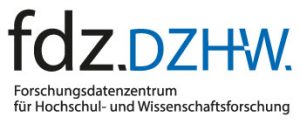- Zeit: Donnerstag/Freitag 15./16. Februar 2018
- Ort: CAU Kiel
- Organisation: Peter Graeff (CAU Kiel), Isabell Stamm & Nina Baur (TU Berlin)
Auch wenn prozessproduzierte Massendaten (sogenannte „Big Data“) etwa in Form von staatlichen Verwaltungsdaten eine mehr als zweihundertjährige Tradition haben, hat sich deren Verfügbarkeit in den letzten Jahrzehnten dramatisch gesteigert:
- Zum einen werden administrative Daten, die als Nebenprodukt von organisationalen und behördlichen Prozessen entstehen (z.B. Registerdaten, Kundendaten), nicht nur seit den 1970er Jahren digital gespeichert und verarbeitet, sondern werden seit Ende der 1990er Jahre etwa über Forschungsdatenzentren und den RatSWD zunehmend für wissenschaftliche Analysen zugänglich gemacht.
- Zum anderen entstehen als Nebenprodukt der digitalen Kommunikation im Web 2.0 neue Arten von Massendaten (z.B. Websites, Blogs, Social Media), die – anders als frühere prozessproduzierte Daten – von den Nutzern dieser Dienste unbewusst und/oder freiwillig generiert werden, bei denen sich die Geschwindigkeit der Datenproduktion stark erhöht hat und die Rechte an den Daten nicht mehr bei staatlichen Akteuren, sondern bei Firmen liegen oder uneindeutig sind.
Nicht nur die Forschungsdatenzentren, sondern auch historische Datenarchive und eine Vielzahl universitärer Projekte arbeiten daran beide Datensorten, also bisher unerschlossene alte Datensammlungen ebenso wie neue digitale Daten, zunehmend für die Forschung zugänglich zu machen. Damit erweitern sich Möglichkeiten für die Sozialwissenschaften, soziale Phänomene sowohl aus aktueller, als auch historischer Blickrichtung zu analysieren. Das gilt umso mehr, je stärker Datensätze miteinander verknüpft und digitale Massendaten in Kombination miteinander und mit forschungsinduzierten Daten einer Analyse zugänglich gemacht werden können.
Im methodologischen Umgang mit diesen Massendaten zeichnet sich ein erstaunlicher Gegensatz ab:
- Die empirische Sozialforschung fokussiert sich in ihren Analysen vorwiegend auf die klassischen administrativen Daten, und die Erkenntnis, dass diese Daten sozial konstruiert sind und damit eigene methodologischen Probleme mit sich bringen, die bei der Analyse reflektiert werden müssen. Diese Methodendebatte war bereits ein wesentliches Moment der Gründung der deutschsprachigen Soziologie und der quantitativen empirischen Sozialforschung, die in den 1970ern wiederbelebt wurde. Als Ergebnis dieser Debatte wurde das Konzept der „Datenkunde“ (als alternative zur „Fehlerkunde“ im Survey-Prozess) eingeführt, verbunden mit der Forderung, dass vor der Auswertung eines
Datenbestands analysiert werden muss, wie die Datenproduktion durch organisationale Regeln, Alltagspraktiken der Datenproduzenten sowie Verhalten der Klienten überformt wird, um daraus die spezifischen Verzerrungen der Population bzw. Stichprobe sowie der Fehler in den Daten zu identifizieren. In den letzten zwei Jahrzehnten existiert vor allem im Kontext der Forschungsdatenzentren eine intensive Methodenforschung, die diese spezifische Verzerrungsprozesse und die sich daraus ergebenden methodologischen Probleme erkundet. - Die internationale „Computational Social Science“ fokussiert in ihren Analysen vorwiegend auf die im Zuge der digitalen Kommunikation entstandenen neuen Sorten von Massendaten. In der Methodenforschung wendet sich die „Computational Social Science“ zunehmend auf neue Analysetechniken und Algorithmen zur Auswertung von Big Data zu. Auch hier zeichnet sich eine Methodendebatte an, die vornehmlich pragmatische Machbarkeitsprobleme ebenso wie die Strukturierung durch Technik thematisiert.
Diese beiden Forschungsstränge sind bislang kaum verbunden und weisen wechselseitige blinde Flecken auf. Durch einen produktiven Austausch könnten beide Forschungsstränge wechselseitig profitieren: Beispielsweise erscheint eine Debatte über die Potentiale neuer Auswertungstechniken aus den Computational Social Science im Bereich der historischen Massendaten vielversprechend. Anderseits erscheint eine kritische Auseinandersetzung mit der Fehlerhaftigkeit und internen Verzerrung von jenen Daten, die in digitalen Prozessen generiert wurden, notwendig.
Dieser Workshop will einen Beitrag zu einem solchen Austausch leisten und hat das Ziel, die Entstehungsbedingungen analoger und digitaler prozess-generierter Daten zu reflektieren und ihre damit verbundenen Verwendungsschwierigkeiten zu diskutieren. Hierzu gehört auch die Frage, ob und wie das Konzept der „Datenkunde“ erweitert oder aktualisiert werden muss. Damit rücken neben messbezogenen Eigenschaften gesellschaftliche, politische und wirtschaftliche Bedingungen in die Betrachtung, die eine Interpretation von Analyseergebnissen erst sinnvoll machen. Der Workshop will diese methodologischen wie theoriebezogenen Fragen auch mit der Absicht stellen, Möglichkeiten aufzuzeigen, mit denen die Aussagekraft prozessgenerierter Daten in sozialwissenschaftlichen Untersuchungen gesteigert werden kann.
Wenn Sie an dem Workshop mit einen Vortrag/einer Präsentation teilnehmen wollen, senden Sie uns bitte das Thema bis zum 30.10.2017 per -Mail an nina.baur@tu-berlin.de zu.


